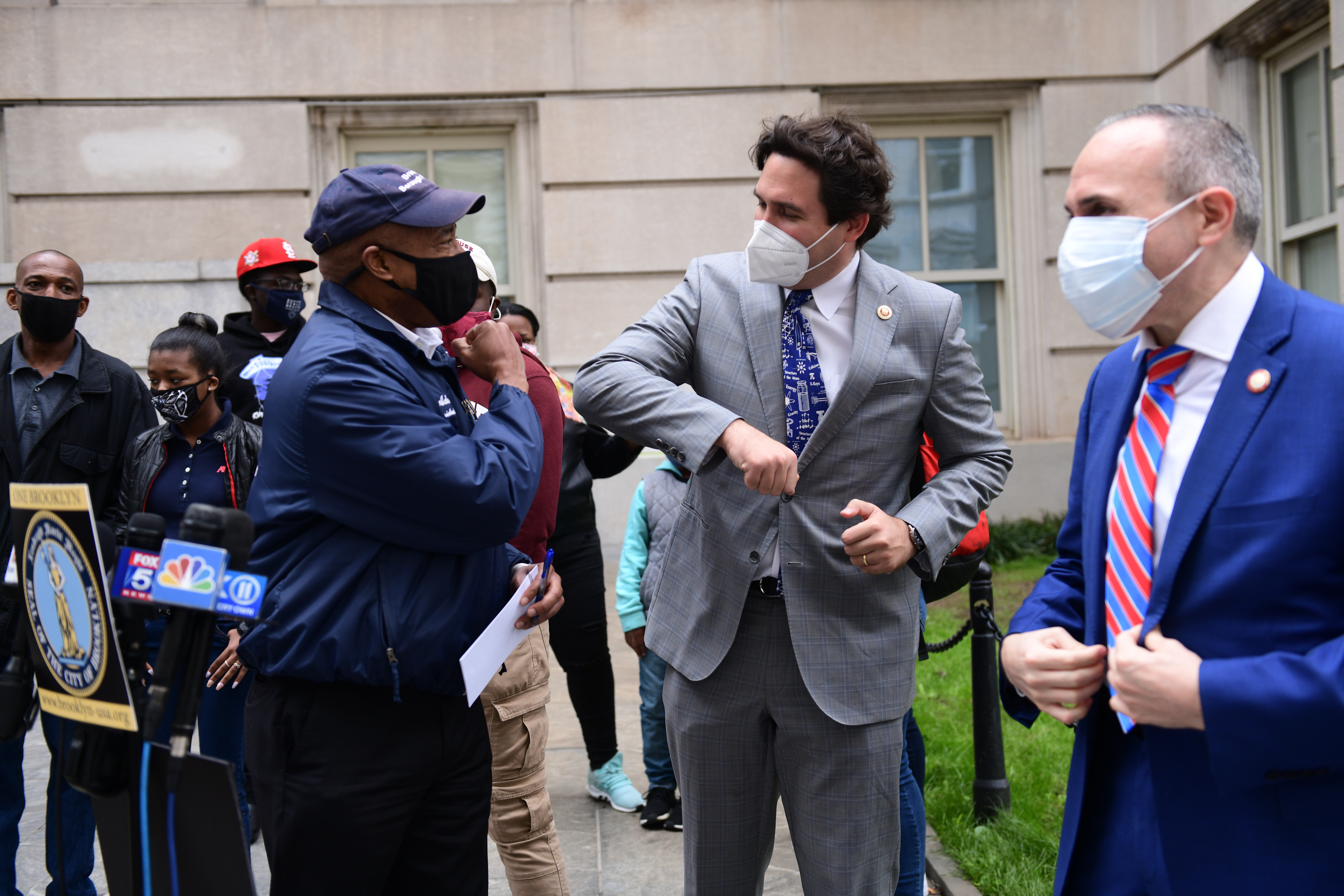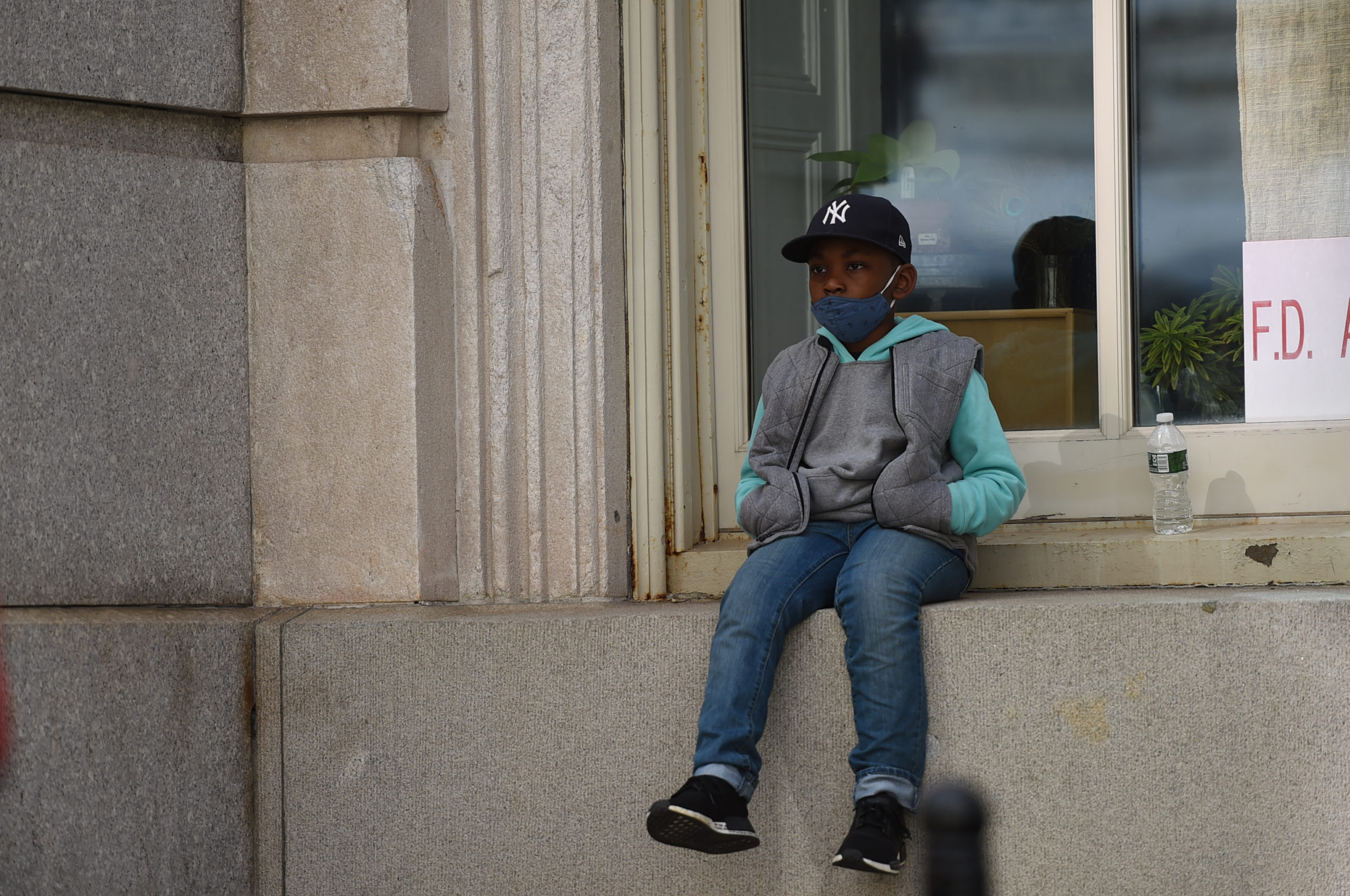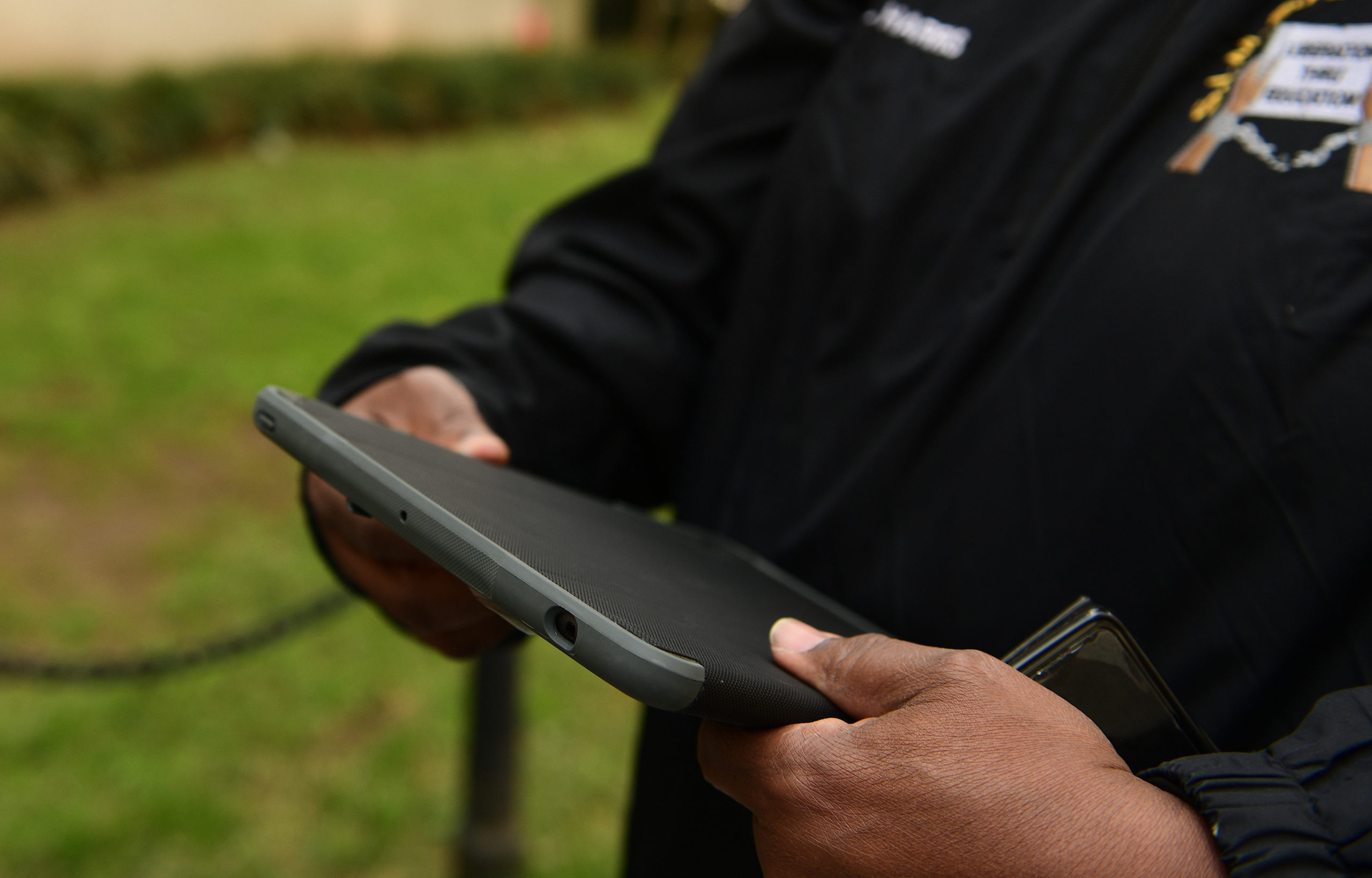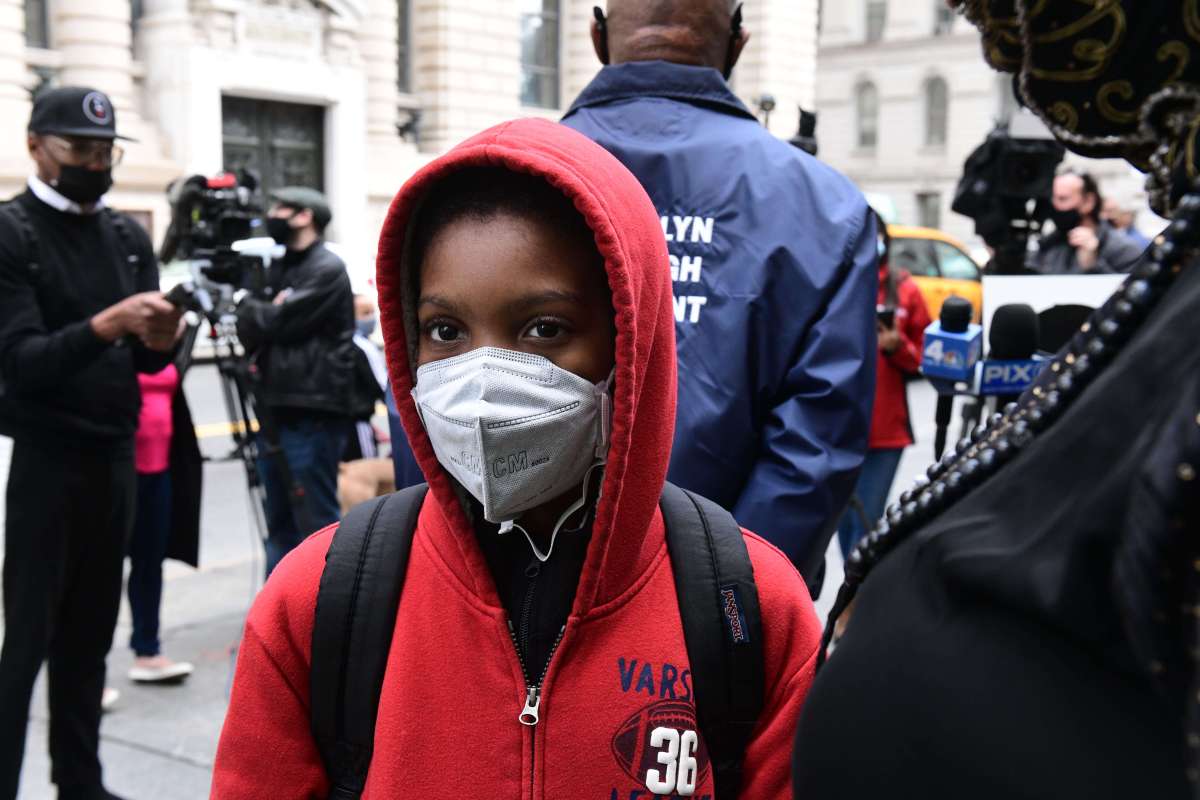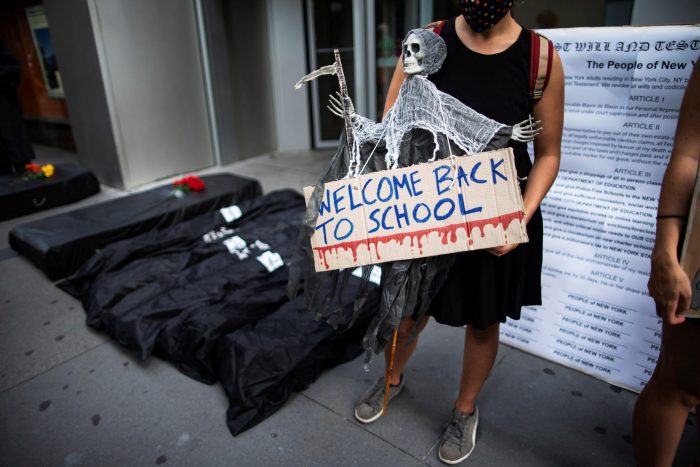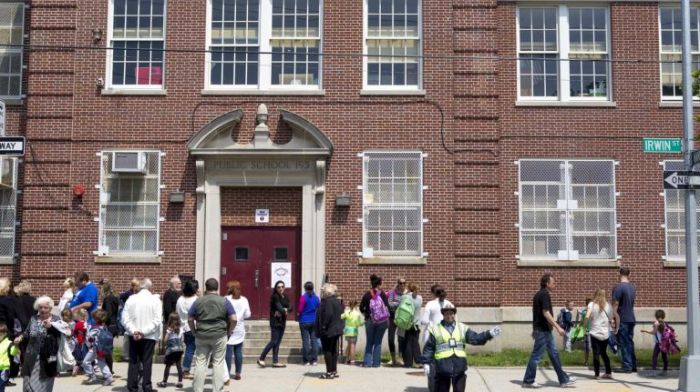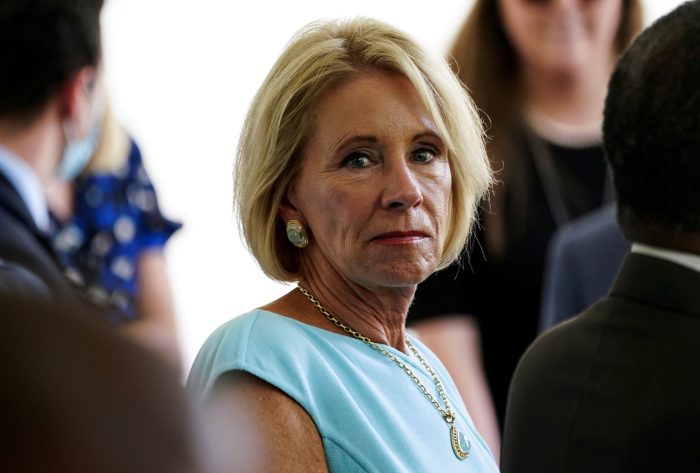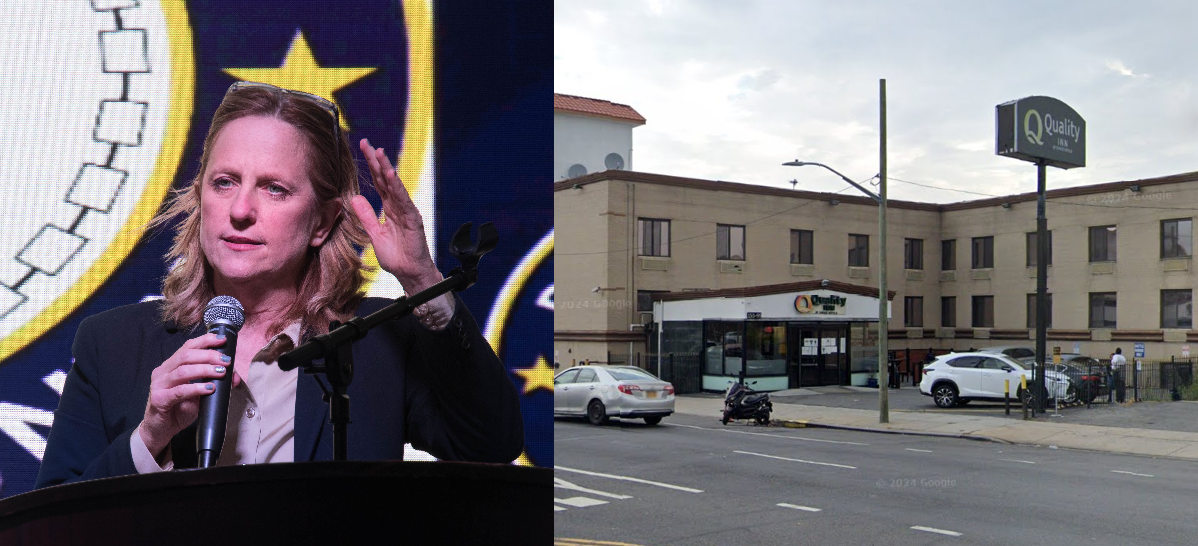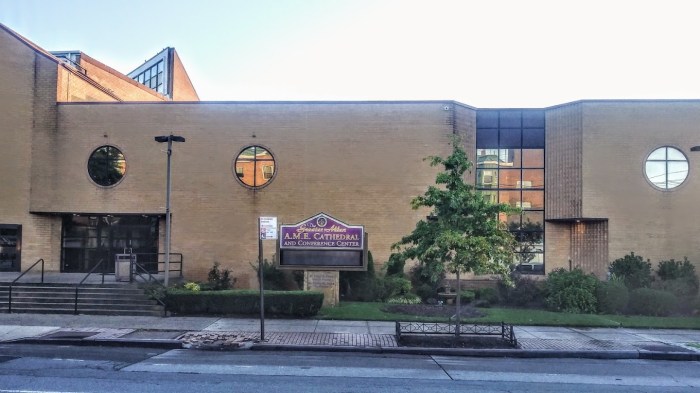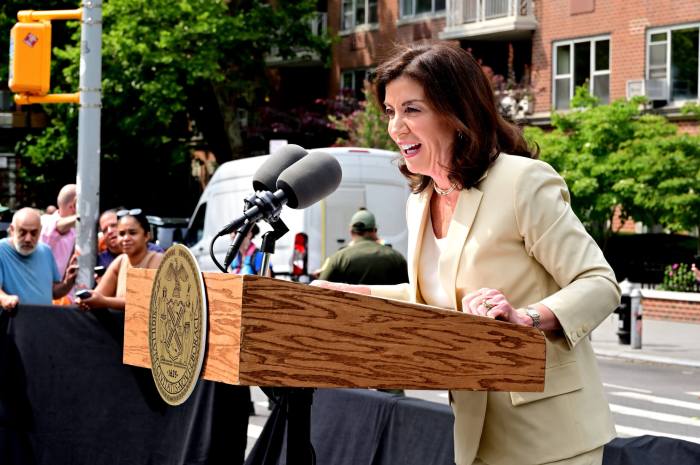More than 77,000 public school children either have no computer, iPad or access to adequate internet, city leaders and education advocates claimed on Sunday.
Brooklyn Borough President Eric Adams led a press conference outside the Tweed Courthouse, at the city’s Department of Education Lower Manhattan headquarters Sunday afternoon. Adams and other advocates say students, many Black and Brown, are being left behind with the new blended and remote learning models because they lack proper equipment and internet connectivity access.
Parents who attended the Sunday press conference were equally concerned that their children did not have laptops, some were sharing equipment while others who lived in homeless housing didn’t have proper internet to take part in Zoom learning.
Some parents said they have begun fundraising through GoFundMe to buy laptops for children who’s families can’t afford to provide them.
Adams, along with City Council Members Mark Treyger and Ben Kallos, demanded sweeping changes before most students fell behind and drop out of school. Adams warned that failure to address this problem would result in generational damage that would leave many inner city kids dropping out of school and turning to negative lifestyles that would land them incarcerated.
“The people of this city should be outraged, impacted or not, over what we are doing to children in temporary housing and in communities that are economically challenged,” Adams said. “It is unbelievable what the DOE has clearly normalized, the lack of education for these students. Every child we fail to educate is a child that will potentially be incarcerated. When you don’t give children the basic education, and you move about as thought it is normal, acceptable, you write them off.”
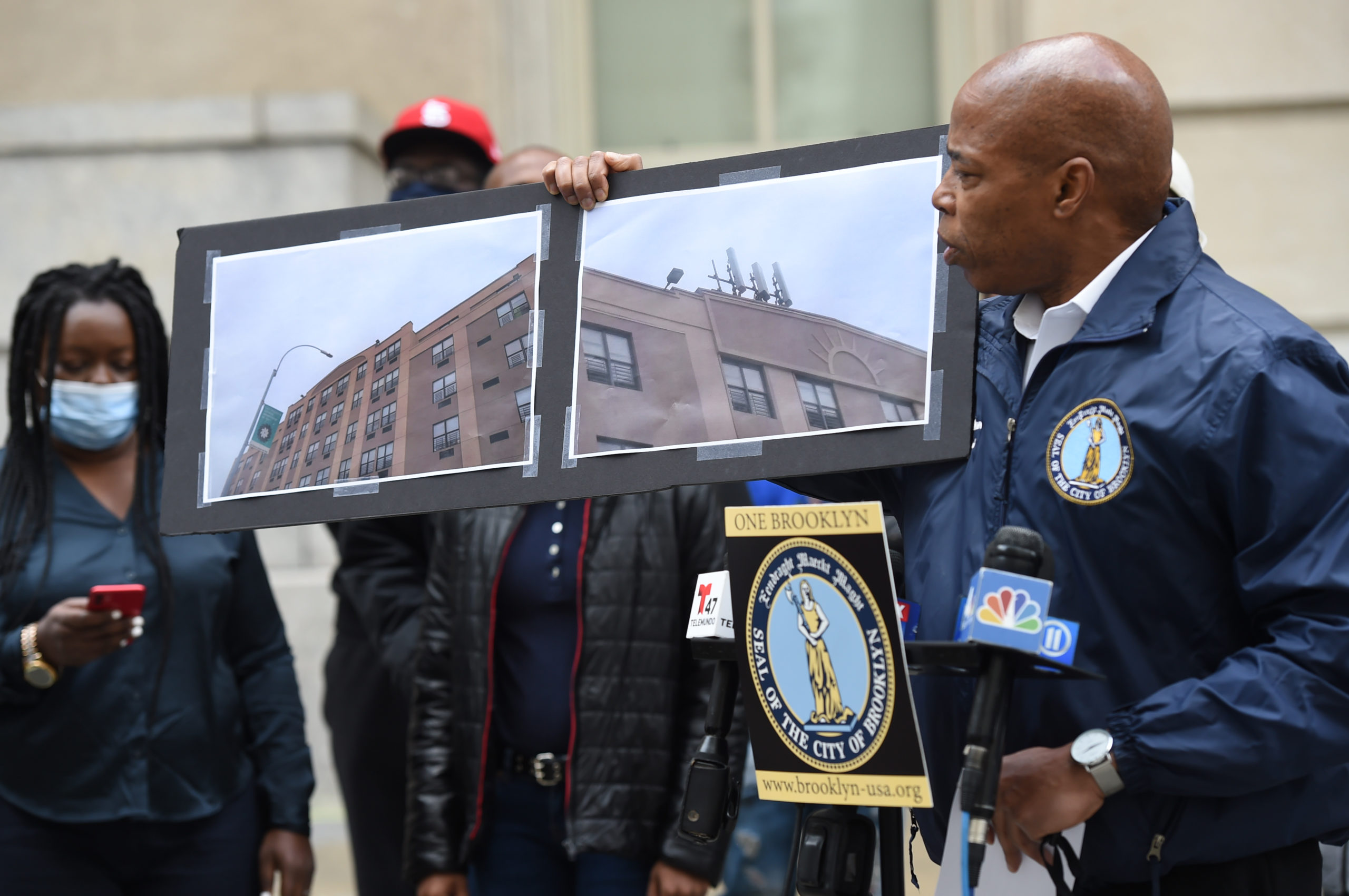
Treyger was equally outraged, especially since he said he needed a subpoena to get the DOE to reveal information on the number of children ill equipped for virtual learning. Treyger, a former teacher, said the problem will go from temporary to generational and will caused permanent damage to children in the city if not addressed quickly.
“On Friday we had a hearing, they were not happy that they had to spend hours answering questions,” said Treyger, adding that the council had been asking for data since May. “The only thing worse than 77,000 kids that we know of not having the device right now, is entering the school year knowing that thousands of children still do not have a device.”
Parents were equally angry that thousands of children were being left behind.
“I have two children that have not received a laptop. It’s hard to have one child who tries to accommodate her siblings getting their education. It’s impossible for them to use their telephones to do homework on,” said Atzalah Allah of Canarsie, Brooklyn, who had her son Lazaro Allah, 9, who is having trouble keeping up in school.
Among the demands of the leaders and parents were:
- Clear daily communication from DOE to every student’s family with outstanding remote learning device requests, including up-to-date tracking on device delivery and coordination with school to ensure student is provided ample ability to catch up for missed classroom engagement
- Immediate line-item transparency from all engaged City agencies, including DOE and NYCHA, on COVID-19 era spending related to procurements of remote learning devices and capital investments to expand Internet access to underserved residents, (leaders say the DOE was paying above retail price for each iPad).
- Public call for major technology and Internet providers to do much more in community benefits, including free broadband and wireless service for all students in need, and declare intent to vote against any operating franchise renewal before FCRC without firm timetable to close digital divide and commitment to greater assistance for families struggling to connect to remote learning, including those with students in temporary housing
- Urge City to utilize its full purchasing power and renegotiate bulk remote learning device procurement for better taxpayer deal at below-retail price, as well as to engage local MWBE-certified vendors in upcoming procurement efforts
- Amplify call to pass Intro 2058 and Intro 2014, bills in the City Council to expand reporting related to remote learning.
Tanesha Grant, a lead advocate for Black Lives New York City, said her group has been raising money to buy laptops for children in families that can’t afford to purchase them.
“I and our organization are tired of the lip service, so we started an initiative to raise $500,000 to buy our black babies laptops – with no strings attached,” said Grant who credited elected officials including Manhattan Borough President Gale Brewer who donated $500 of her own money to the cause. “This our community and this is what community look like. We just bought our first 20 yesterday, but it’s not enough.”
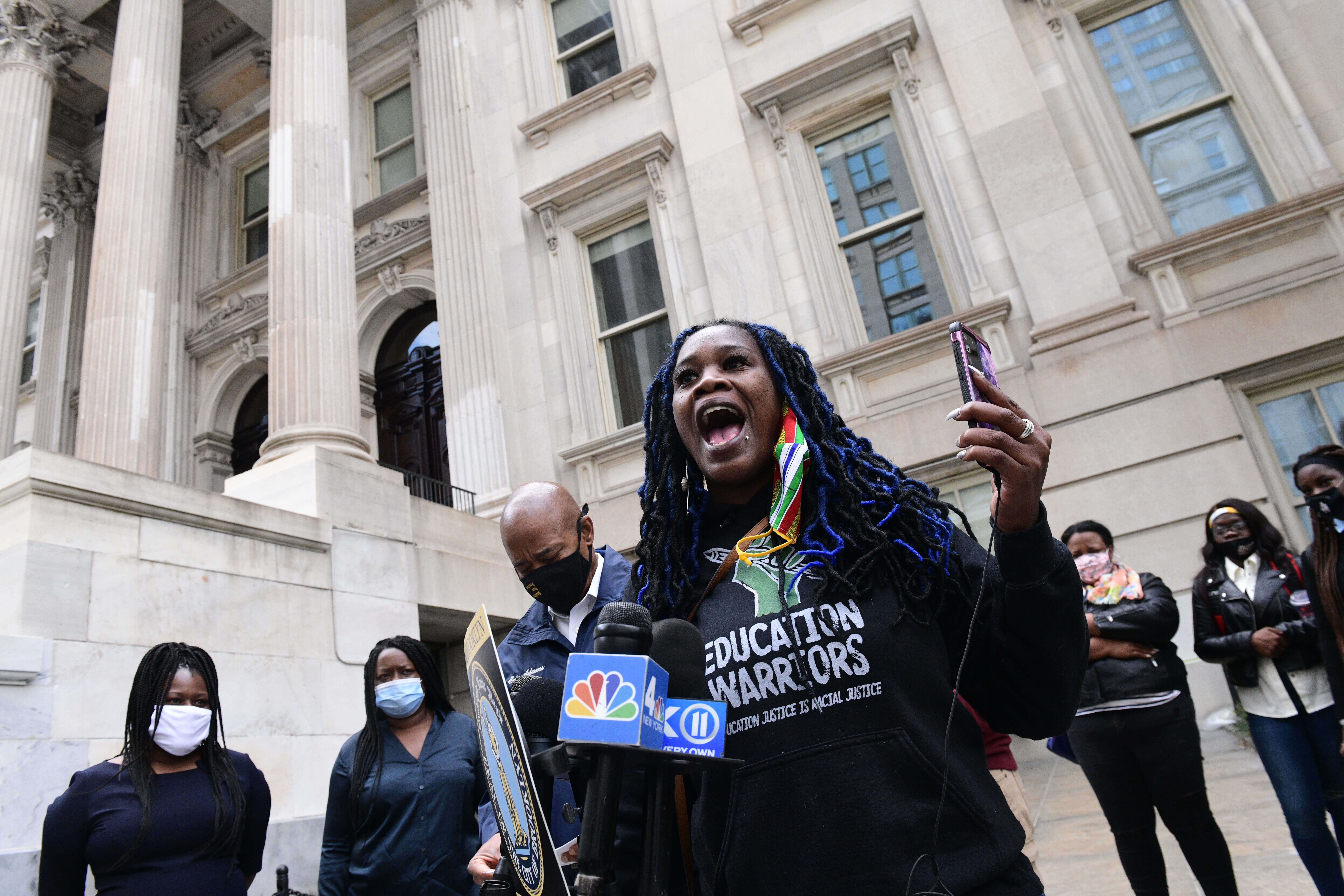
Adams was asked how voters can accept democratic leadership if people in the same party are criticizing each other over the lack of educational equipment. Adams said the problems of underfunding education started long before under Rudolph Giuliani and Michael Bloomberg and he added that the current Republican administration has not provided the needed funds to raise education standards.
“The city was run for 20 years by Republicans,” said Adams, who is running in a large field for mayor of NYC. “Mayoral control was under a Republican mayor, Bloomberg was given complete control of the educational system. Currently, the money we are not receiving on the federal level is coming from a Republican president who has clearly prevented New York State, and other big cities from receiving resources they needed from the federal government that happens to be a Republican. Incompetency is not a party, incompetency is how we are failing to run this city.”
